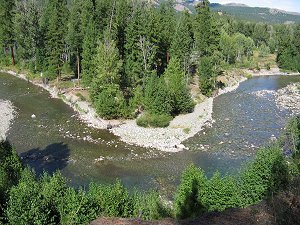 I usually am stimulated when I read the articles posted on The Baptist Studies Bulletin and I commend this web site to you.
I usually am stimulated when I read the articles posted on The Baptist Studies Bulletin and I commend this web site to you.In the recent posting Walter Shurden writes of Peter Randolph who was a Baptist preacher (1825?-1897) in the USA. I will let Shurden tell the story:
“Randolph was a slave for the first twenty-seven years of his life. Having spent his slave years in Prince George County, Virginia, he spent his years of liberation primarily in Boston. After his liberation, he travelled extensively, preaching the gospel and acting on behalf of African Americans.
Unschooled, he learned to read and write basically on his own. He wrote two books. He wrote the first volume in 1855, and he entitled it Sketches of Slave Life. Don’t read it after dinner, because it will sour your supper! One recent reader of Sketches said, “This book impacted me physically.” Another could not hold back tears. Another had trouble even continuing the book. Read it and you will understand these responses. You can read it in less than an hour.
Peter Randolph called his second book From Slave Cabin to the Pulpit: The Autobiography of Rev. Peter Randolph: the Southern Question Illustrated. It was first published in 1893. Read it and you will be struck by this ex-slave’s courage to confront. You will be inspired by his incredible hope and belief in justice. Given that white Baptist Christians in the South overwhelmingly blessed the evil of slavery, their descendents today will probably be amazed at the fact that Randolph stayed within the Christian church generally and the Baptist denomination in particular. (And many of us turn our backs on church with such giant cynicism and for such petulant reasons!) You will be awed by his gratitude for friendship. He had many, many friends…
Maybe the most incredible lines in the autobiography appear in the last chapter: ‘The river has its bend and the longest road must terminate. As I look backward and take a retrospective view of my past toils and sorrows, and the vicissitudes through which I have passed, I FEEL THAT I HAVE MUCH TO BE THANKFUL FOR (p. 131, online edition; caps and bold are mine).’ Thankfully, for us, his gratitude trumped his understandable anger.”
Image: ‘The river has its bend’

